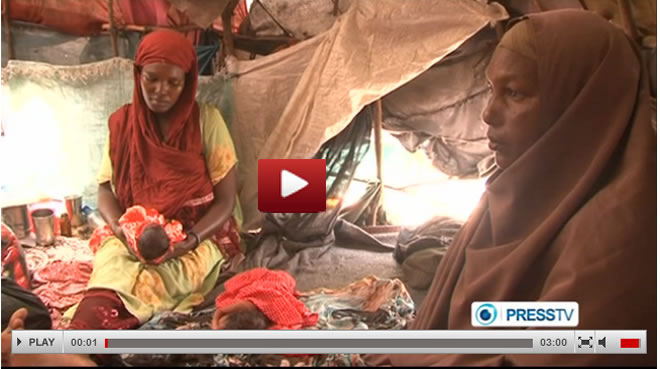In one of Mogadishu camps, we encounter Halima Mohamed, a mother of six.

Abdulaziz Billow
Monday, October 15, 2012
Mogadishu - Halima is an internally displaced person in Tarabunka camp and hails from Marka town after fleeing clashes between Somali government forces backed by AMISOM and Al-Shabaab fighters.
Inside this shanty house with no proper facilities to even call a home, Halima courageously gave birth to quadruplets, three girls and a baby boy with help from her mother and an older sister. Unfortunately the little boy passed away hours after birth, leaving Halima, a mother of triplets.
Halima Mohamed gave birth to quadruplets inside this shanty house without the proper medical attention as compared to the developed world, thus putting her life and that of her newborns at risk.
With newborns seen as a blessing in Somali tradition, Halima’s mother says that the newborns will increase the burden of the rather poor family who rely on help from aid agencies.

For Halima’s friends, all they can offer her is concern and sympathy since they are similar to her and depend on well-wishers for help. Until recently Halima called this shanty bush house her home but well-wishers later moved her and her newborns to an iron sheet room.
Halima recalls hearing from her husband eight months ago as she came to Mogadishu. She says that with the securitysituation in Somalia, she can’t confirm whether he is alive or dead. There are no proper health institutions in Mogadishu coupled with a shortage of professional doctors. The war-torn nation has been engulfed in conflict for 20 years and the greatest risk to women’s lives is not war but birth.
According to UNICEF, child and maternal mortality rates for Somalia are amongst the highest in the world; one out of every ten Somali children dies before seeing their first birthday. UNICEF also estimates that one out of every 12 women dies due to pregnancy related causes with access to maternal services low with only 9% of births being attended by a skilled birth attendant.
Source: PressTV